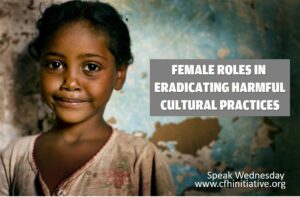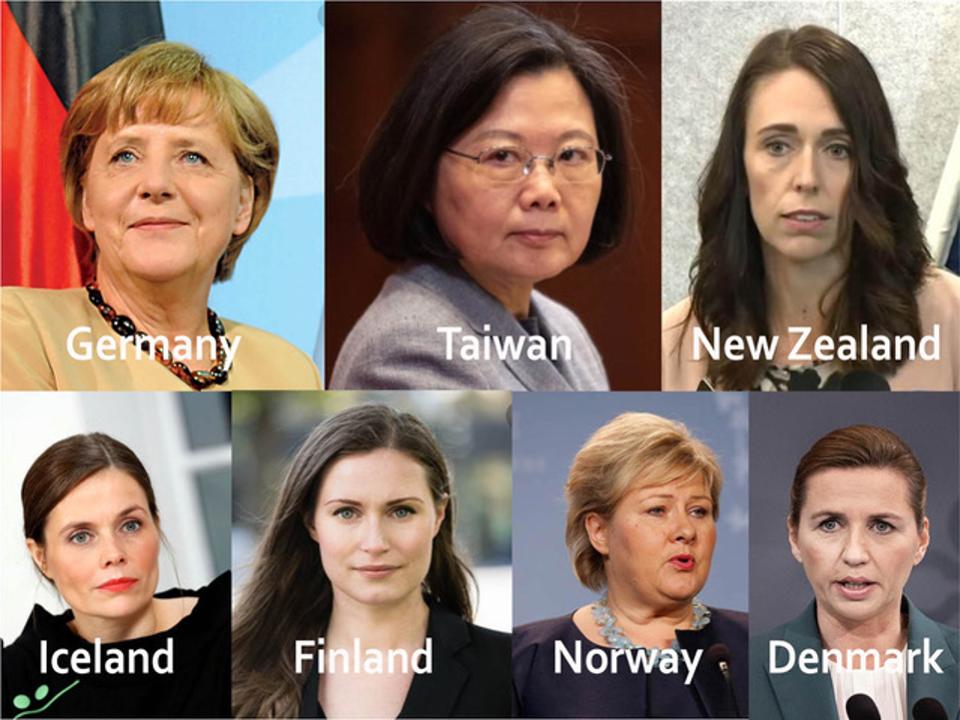FEMALE ROLES IN ERADICATING HARMFUL CULTURAL PRACTICES
Certain cultures in different parts of the world accommodate harmful practices that encourage forms of exploitation, violence, abuse, injustice, discrimination and marginalization, committed primarily against women and children. Female Genital Mutilation (FGM), child/forced marriage, initiation rites, infanticide, male preference, honour killings, forced begging, stoning, acid attacks, bonded labour, sexual slavery, breast ironing, and nutritional taboos are harmful practices that are detrimental to the health and wellbeing of its victims.

Significant progress has been made thus far to eradicate harmful cultural practices globally, but the economic, physical and social disruptions caused by the ongoing pandemic could deter the advancement. The new United Nations Population Fund (UNFPA) projections in April 2020 predict that the COVID-19 pandemic may cause about 2 million more cases of Female Genital Mutilation and about 13 million new child marriages in the next decade because of significant delays in programmes organized to tackle harmful cultural practices and economic hardships.
Women are at the forefront raising their voices against harmful cultural practices and providing interventions to support its victims even amidst the pandemic. Stephanie Linus is an award winning Nigerian actress, filmmaker and activist passionate about women and child rights. ‘Dry’ an award winning movie produced by her exposes the evils of child marriage and the physical and psychological consequences associated with it. Through her foundation ‘Extended Hands’ she has partnered with local and international organizations in building awareness on fistula prevention, maternal health, family planning and has provided various medical interventions to indigent girls and women suffering Vesico Vaginal Fistula (VVF) in Sokoto, Kebbi, Cross River, Oyo, and Kwara states in Nigeria. Her foundation has continued to provide more interventions to vulnerable women and girls, deflating the number of new victims of harmful traditional practices in the COVID-19 era. She was recently appointed as the UNFPA Regional Goodwill Ambassador for West and Central Africa.
It is important to note that women are the most qualified advocates to fight for the eradication of harmful traditional practices. This is because women are the highest fatalities who have experienced and survived the repercussions of these practices. Hence, more women should be encouraged to speak up and empowered to be self-reliant.
Centre for Family Health Initiative (CFHI) continues to echo the call for an end to the suffering of girls and women caused by harmful traditional practices through community outreaches, policy-oriented research, and media campaigns. CFHI has through the United States Consulate Women And Youth Empowerment (WYNE) project, mitigated the rate of female genital mutilation, child marriage, violence against women, land disinheritance, gender (Son) preference, Incest, rape and harmful widowhood practices in Ngor Okpala community, Imo State, Nigeria. After having ten community dialogues with the community stakeholders, resolutions on these harmful practices were reached, leading to the development of a community charter that was signed by the paramount traditional ruler and representatives of the villages that make up the community. Operation-Know-Your-Right Campaign was thereafter organized through which over 735 women and 28 youths were sensitized with the right knowledge to stand against harmful cultural practices within and outside the community.
Speak Wednesday is an initiative of Centre for Family Health Initiative to stop the cycle of domestic violence by breaking the silence around gender based violence and gender bias. Join us every Wednesday on all our social media handles for more episodes.


